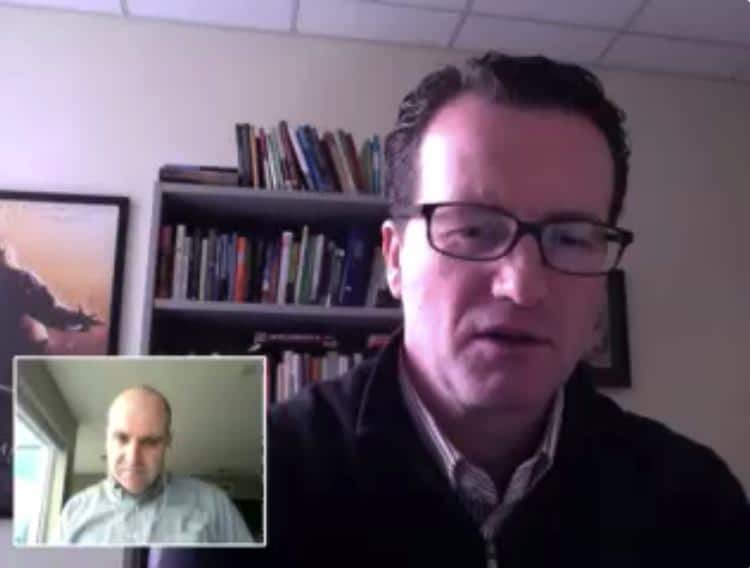Urban Church Planting: An Interview with Mark Reynolds


Mark Reynolds is Vice President of Redeemer City to City, an organization that aims to help leaders build gospel movements in cities. I love what City to City is doing, and I’ve found Mark to be a wealth of wisdom on why urban church planting is important, and how we can plant effectively in the key urban centers of the world.
I’m grateful that Mark took the time to answer some of my questions.
Your role allows you to see what God is doing in cities all around the world. What excites you?
Primarily in the West I’m seeing a convergence of ministry innovation and learning in the context of urban church planting. You have this overlap of cities as an idea, and then church planting. These are potent tools for research and development for the church. This creates a laboratory of learning and ministry innovation. Over time this will be extremely helpful to the city churches and others that are outside of the cities as well.
I’m also seeing a growing awareness of the need and opportunity in cities for church planters. There’s a growing awareness, but we’re still lagging behind in the competencies and proficiencies to do it well.
The story is still unfolding, but there are three things that I am excited about:
- First, the church in the West is thinking through its relationship with the culture. It’s bringing more explicitly its understanding of its role in the culture as a particular church or collection of churches instead of just letting the culture determine that or just assuming that there’s one model. They’re not just acquiescing to the culture or taking a militant posture towards the culture but asking, “How are we as a church to relate to culture in this particular time in history, with our gifts and our contributions?” Before it was either assumed for us, or it was just nakedly brought in without us thinking it through. I’m excited that churches are thinking this through.
- Second, there’s a simultaneous awareness of the gospel being both proclaimed and embodied in deed. The church is committed to preaching the gospel, calling people to the new birth. We’re also realizing there are great needs in the city. Churches need, for the love of neighbor and for Christ’s sake, to serve those that have need.
- The third thing I am excited about is still evolving. The church is asking what evangelism and apologetics looks like in this particular time in these urban centers. How does the church do persuasion? How do we address the base line narratives that urban dwellers are asking or living in and not just assuming that we know? The church is entering into those stories, asking what people are thinking, and considering how they present the gospel to those people God has called them to reach.
We are still learning from them because evangelism can be a challenge in the cities. I think that the church that isn’t in the city should be attracted to learning from these urban churches, because that’s where a lot of innovation is taking place. Cities as an idea are already the leading edge of forming culture. They are creating the new norms. How is the church responding to the new norms? It’s very important. We want to be learning from them as well as helping them flourish.
What concerns you?
Well maybe lets start with the macro level.

Many urbanologists are telling us that five million people each month are moving into cities. This is taking place through domestic and international migration. It’s a staggering number of people. Over two months that’s ten million people – a significant city every two months being added to the globe as it were. God is moving the human community into cities. Even to keep pace with that urban growth trend we would need to create 500 new congregations every month. Thats only assuming one church for every 10,000. Missiologists tell us that we need at least one vibrant church for every 1,000 people, so just to keep pace at a very unreached level we would need to be planting 500 churches a month in the cities. Really, to reach those cities, we need to do 10 times that.
The need is overwhelming, and the invitation to the global church to awaken to this need should be there. It should keep us seeking the Lord of the harvest to raise up laborers to reach people in cities.
Within the West, I think that we are not keeping up with the contextualization requirements. By that I mean, it’s too easy to import a model of ministry that has shaped us. We are all creatures of habit. We are all shaped by different things, but the imposition of a church model that we love or we haven’t properly assessed just doesn’t make sense. We need to be weened off a certain imperialism, just assuming that we know what cities need without listening and learning.
Then maybe the other thing that I am concerned about is that it’s a challenging assignment. What is attracting churches and leaders to these cities? Is it with a redemptive heart? Or is it that it’s a nice place to live and raise a family? There can be a lot of idolatry and hubris built around that as we kind of think about going into mission in the cities, but hopefully we’ve thought it through.
We haven’t really seen church planting by multiplication in North America. It seems to be mostly incremental. Do you see this changing?
I would love for it to change. I see examples of some churches that are multiplying, but I don’t see it happening at a constant place or in many locations or many denominations.
I think we have embraced that ideology as a way of giving us an identity and vision, but it actually isn’t happening as much as it should. The invitation saying “Let’s be a church that multiplies, let’s be a network that’s growing exponentially” is desirable, but we still have a lot of churches that need to be planted. We need to ask particular churches, “What is our unique calling within this church multiplication world and how can we as a particular church be generative in the way that God has made us?”
We can be generative by partnering with other churches to plant churches.
We might be a church that raises up a lot of leaders and sends them out but doesn’t exactly create what we might call daughter churches. Instead of saying, “Our church isn’t multiplying,” we need to ask ourselves, “How can we be generative, how can we expand the body of Christ though the the unique gifts and abilities we have?”
There are reasons why some churches struggle to be multiplying churches. I’m recognizing some unique calling they may have, and I’m not simply saying, “Because you didn’t multiply within 3 years you are never going to do so.” I want to say, “There might be other things you can do to participate in growing the body of Christ in your city or your community.”
What practical steps can churches in a city take to work towards a gospel movement in that city?
We know that churches that are multiplying need to be at the core of the gospel movement in a particular city.
We would love to see gospel movements happening in places and cities. That’s one of the reasons why Redeemer City to City exists as an organization.
As for the particular question of how can churches participate in that, we can again ask, “What is our particular contribution in a gospel movement in a city?” The needs are great and we can almost be overwhelmed by the scope of the mission and the scope of the need. I want to see a gospel movement happen in this city where there is Shalom and there’s flourishing of the city, and people are coming to faith. What is the unique way that God has designed our church. How can we steward that? These are the fundamental questions the church could ask itself.
When we have theological or geographic affinity with other churches, we could do a few things together rather than operating our churches as silos. The need is great, and a gospel movement assumes that churches are beginning to work together.
As we study the history of revival we see the unique ways God brings about a movement or brings about revival. It’s anteceded and sustained by corporate prevailing Kingdom-centered prayer. Any way that churches and leaders can come together to pray for he whole city, not just their own church and its needs, will be a powerful testament. If we want to see a gospel movement happening, it has to be preceded by this Kingdom-centered corporate prevailing prayer.
There are evidences of stages that some cities are moving across over a period of time. It probably takes longer than we might have realized or hoped for. But yes, I see new churches being birthed and churches coming together for missions, and that is exciting.
How can we pray for you in your role at Redeemer City to City?
We want to see the city become a cause that the church awakens to, just as the church has thought about poverty or any kind of challenge or struggle in our world. We want the church to be awakened to the city as a cause of mission as never before. So we are thinking of ways of doing that, but we want lots of partnerships and people joining us. We want to be sound with humility and confidence that cities are a cause we need to champion as the church.
The second would be that we find both long term sustainable and fruitful ministry in cities. I think about the church planting families, church planting couples, all that we relate to. I am always praying for them to be able to have long term fruitful ministry in cities – any church leader, any pastor, and any church planter.
I was recently reading a book by Paul Trip called Dangerous Calling which outlined with great skill, the unique challenges of that calling that intensify in pastoral ministry When and then when you come into urban ministry it intensifies even more.
So be praying for us, that God would allow us to have fruitful long term ministry and that we would avoid some of the challenges that are in that dangerous calling and actually thrive and see the body of Christ flourish in that city. So that’s how you can be praying for us, for me and others.
Thanks, Mark.






